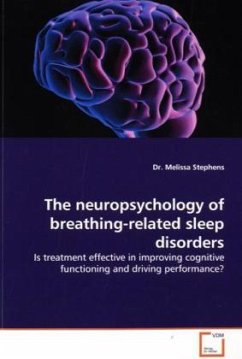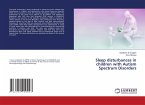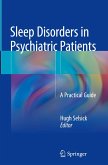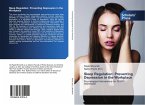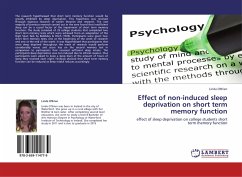Obstructive sleep apnea (OSA) is a complex disorder
of neural respiratory control and upper airway
dysfunction that results in repeated complete and
partial occlusion of the upper airway during sleep.
Obstructive sleep apnoea has been linked to fatigue,
increased rates of road and work-related accidents
and deficits across a range of neurocognitive
domains. The most widely used treatment for OSA is
continuous positive airway pressure (CPAP). The
author investigates the effects of OSA on
neurocognitive functioning, simulated driving
performance, vigilance, and objective and subjective
sleepiness, and answers the question: is treatment
with CPAP effective in alleviating any or all of
these deficits? These issues are discussed in light
of the importance of detecting such impairments in
order to minimise the risk of accidental injury to
sufferers of OSA and others. This book will be of
interest to psychologists, sleep researchers, and
scientists in general.
of neural respiratory control and upper airway
dysfunction that results in repeated complete and
partial occlusion of the upper airway during sleep.
Obstructive sleep apnoea has been linked to fatigue,
increased rates of road and work-related accidents
and deficits across a range of neurocognitive
domains. The most widely used treatment for OSA is
continuous positive airway pressure (CPAP). The
author investigates the effects of OSA on
neurocognitive functioning, simulated driving
performance, vigilance, and objective and subjective
sleepiness, and answers the question: is treatment
with CPAP effective in alleviating any or all of
these deficits? These issues are discussed in light
of the importance of detecting such impairments in
order to minimise the risk of accidental injury to
sufferers of OSA and others. This book will be of
interest to psychologists, sleep researchers, and
scientists in general.

